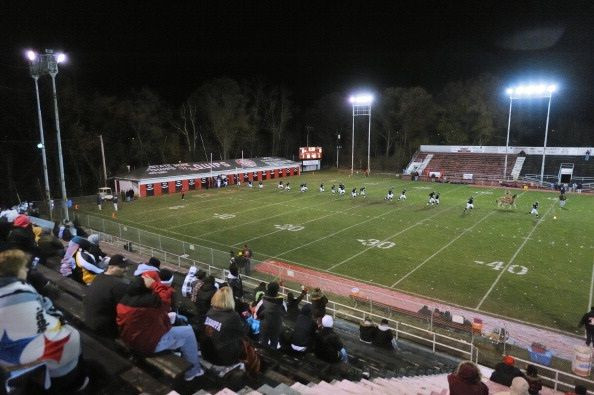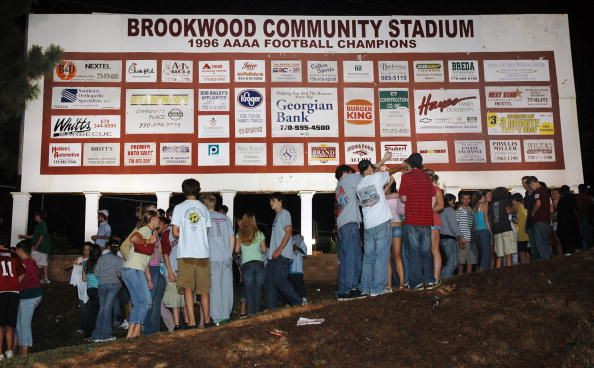High Schools Selling Stadium Naming Rights For Extra Cash As National Trend Spreads

To combat tightening funding, high schools across the U.S. are turning to banks and other big businesses — not for loans, but for stadium-naming deals.
Public high schools in Illinois and Indiana — taking a cue from college and pro sports — are selling naming rights to their athletic stadiums. In some cases, they're even selling naming rights for classrooms and other facilities, in an effort to fight shrinking budgets, the Chicago Tribune reported. The move by the schools is part of a growing national trend.
The nonprofit Penn-Harris-Madison Education Foundation has signed deals that will bring the school district, which includes 11 public high schools in Northern Indiana, more than $600,000 in added revenue in the coming years. The district sold off the naming rights to football stadiums, baseball fields and even a music room. Districts elsewhere and in Illinois have been cutting identical deals, in some cases even placing ads in local papers.

High schools across the U.S. are making similar deals. By 2014, dozens of high schools in northern Ohio had secured sponsors for their football stadiums.
New Caney Independent School District, a Houston-area high school district, responded to a 2014 offer from automobile dealer Bert Brocker to advertise near the district's football stadium's entrance with a $60,000 counter offer for Brocker to sponsor the entire stadium.
But New Caney ISD is far from the only Texas school district with a high school stadium sponsorship deal.
"I see this as kind of a logical progression," Josh Boyd, an associate professor at Purdue University's Brian Lamb School of Communication told the Chicago Tribune. "It's not surprising we're seeing the next level down in athletics doing the same thing [as pro and college teams]. But I think it's still in the early stages."
As budget problems persist, school officials across the country are eyeing more potential revenue generators, including parking lots, gyms and even individual classrooms, which could all be sponsored.
© Copyright IBTimes 2024. All rights reserved.






















